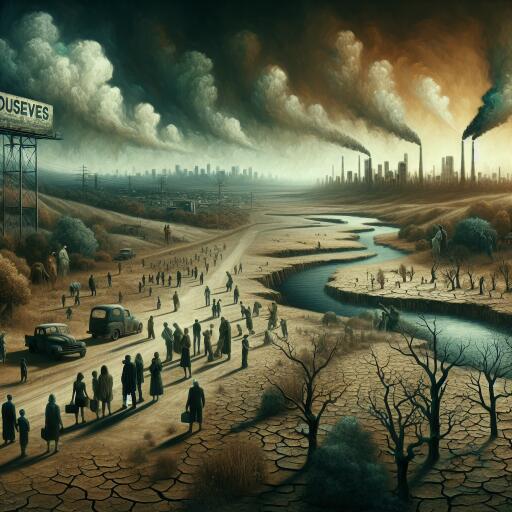
Communities Devastated by Climate Impacts Speak Out Against New Gas Strategy
Communities across Australia, notably those who have borne the brunt of climate change’s devastating effects through floods, wildfires, and the encroachment of rising sea levels, have voiced their profound disappointment with the government’s new approach to gas exploitation. This move has struck a chord of betrayal among these vulnerable communities, including our neighbors in the Pacific Islands, who stand on the edge of climate-induced upheaval.
From the streets of fire-ravaged towns to the increasingly submerged shores of Pacific islands, the message is unmistakably clear: the expansion of fossil fuel ventures, such as natural gas exploitation, is untenable for our planet’s and our people’s future. Yet, recent strategies unveiled by the government seem to starkly contrast this urgent call for action, stirring emotions ranging from dismay to outrage among those already facing the harsh realities of a warming world.
Dr. Aunty McRose Elu, a respected elder from the Torres Strait and a formidable advocate for her community, shared heart-wrenching insights into the ongoing climate crisis in her homeland. “As torrential rains batter our islands and sea levels rise ominously, our government elects to pursue further gas projects—a direct assault on our fragile ecosystem and our very survival. Our plight, brought to the attention of the courts, highlights a dire prediction: we may have no choice but to abandon our islands within decades if current trends persist,” she stated, urging officials to witness firsthand the devastation unraveling on the ground.
From the perspective of those who have faced the flames, Jo Dodds, President of Bushfire Survivors for Climate Action, and Serena Joyner, the organization’s CEO, have criticized the government’s new fossil fuel agenda as a gross neglect of community safety in favor of gas industry profits. “Scientific evidence, recognized by the government in judicial forums, confirms the link between fossil fuel exploitation and the intensification of climate disasters. Yet, our appeals for a future rooted in sustainability fall on deaf ears,” they lamented, signaling a clear betrayal of promises to champion meaningful climate action.
In the flood-stricken regions of the Northern Rivers, community leaders like Chels Hood Withey and Miriam Torzillo stand in solidarity with the broader movement against fossil fuels. “The Future Gas Strategy, advocating for gas reliance well into 2050, outright ignores the urgent need for a renewable energy transition. In light of the recent calamities that have befallen our community, such as the unprecedented floods and wildfires, our resolve only strengthens to demand a cleaner, sustainable energy future,” they expressed.
Backed by a coalition of advocacy groups, including the likes of Bushfire Survivors for Climate Action and Reclaim Our Recovery, these voices represent a growing chorus of Australians demanding an immediate shift in energy policy. The call is clear: for the sake of our shared future, and in the face of escalating climate emergencies, the push for new fossil fuel projects must end, making way for a swift and decisive pivot towards renewable energy solutions.
As communities across the nation and the globe grapple with the repercussions of climate change, the government’s commitment to fossil fuels, as evidenced by recent strategies, is met with increasing scrutiny and opposition. The stakes, as ever, remain immeasurably high. The tender balance of our planet’s climate, the preservation of vulnerable ecosystems and cultures, and the overall well-being of current and future generations hang in the balance, prompting a critical examination of our energy policies and priorities in the fight against climate change.





Leave a Reply